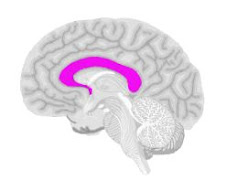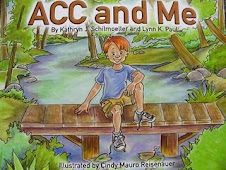
I recently watched the movie "Temple Grandin" on DVD
and absolutely loved it.
Have you seen it?
It is an original HBO film.
I rented the DVD from redbox for $1.00.
Dr. Temple Grandin is an Author, a Scientist and a Professor
at Colorado State University. Oh, and she happens to have autism.
The movie is based on Temple Grandin's life story and
is absolutely worth seeing.
Watching the movie is an eye-opening experience for
those of us who don't have autism, for those of us
who work with kids who have autism and for those of
us who are parents of kids with autism or
agenesis of the corpus callosum.
Temple Grandin, who has autism, has a very unique ability
to provide incredible insight into what it is like to be
autistic.
When you rent the DVD movie be sure to also watch
The Making of Temple Grandin Commentary in the Special
Feature section of the menu.
Actress, Claire Danes, portrays Temple Grandin in the
movie.
The Commentary goes through the movie and gives
verbal input from the real Temple Grandin and also from
the writer and director.
I found the Commentary to be very insightful and
interesting listening to their dialogue and conversations
in addition to the movie scenes.
And if you're wondering why I'm posting about autism on
a blog that's about Agenesis of the Corpus Callosum it's
because, while ACC and Autism are two separate
neurological disorders, some kids who have
Agenesis of the Corpus Callosum (or a corpus callosum
disorder) may also be diagnosed with Autism,
Autism Spectrum Disorder (ASD) or Pervasive
Developmental Disorder-Not Otherwise Specified
(PDD-NOS).
Some kids who have ACC don't have autism but can
sometimes display some autistic-like behaviors and
may have some similar autistic traits like sensory
issues, stimming behaviors, challenges with abstract
thinking and social challenges.
My own child, who is completely missing his corpus
callosum, does NOT have autism but he does have some
autistic-like behaviors.
Some kids who have ACC may be bothered and even scared
by loud noises or by particular noises. They may cover
their ears and need to get away from the noise.
Some kids who have ACC may also have trouble processing
the information that they hear due to sensory processing
issues.
Due to the lack of awareness of ACC and lack of written
information pertaining to corpus callosum disorders, it can
be helpful to seek out books that deal with autism because
they may often times provide some information about similar
symptoms and challenges sometimes also seen in people
who have corpus callosum disorders.
Hopefully in the very near future Agenesis of the Corpus
Callosum (ACC) and corpus callosum disorders will be as
familiar and recognized as the diagnosis of autism.
More research with respect to corpus callosum disorders
may even provide a possible correlation between the
corpus callosum and autism..?
Getting back to the movie, check out a conversation with
Temple Grandin in the video clip below:
Temple Grandin strongly believes (and speaks often about)
the need to have more research on sensory issues.
An interesting conversation took place in the
Making of Temple Grandin Commentary that dealt with
sensory issues. It involved a particular sensory
issue involving her aversion to automatic sliding
doors.
This question was asked of Temple:
"If someone had gone with you through a door all day
long do you think it would have desensitized you?
Could you have gotten over it that way?"
Temple's Answer:
"You can desensitize. See, this is something that is
always brought up about sensory problems. Well, if
the kid is afraid of noise do you just jam them into
it? You can do a certain amount of that desensitizing
but it works best if the individual makes the door
move or turns on the sound."
Temple goes on to say that if you just jam a person
(who has sensory issues) into the middle of a big, noisy
situation they can get into total sensory overload.
She has also written several books about autism
that deal with sensory issues, social challenges
and more.
I have read her book titled Thinking in Pictures.
She is a wonderful writer. I love that she is clear,
concise and writes in an easy-to-understand style that
flows giving detail and insightful information.
Check your local library to borrow Temple Grandin's
books.
Click on the links below to read inside her books.
Thinking in Pictures-click to read

The Unwritten Rules of Social Relationships-click to read

The Way I See It: A Personal Look at Autism & Asperger's-click to read

Dr. Temple Grandin speaks at many Autism Conferences
across the US.
Is Dr. Temple Grandin speaking in your area?
2010 Autism Conference Schedule
Personally, I think it would be great to have Dr. Temple
Grandin speak at the next Disorders of the Corpus Callosum
Conference.
"Good teachers understand that for a child to
learn, the teaching style must match the student's
learning style."
-- Temple Grandin, Ph.D






















I have ACC and have 2 Children with Autistic-Like Tendencies. One child has Autism ( MRI ruled out ACC) The other remains to be seen!
ReplyDelete~Sara
http://neuro.psychiatryonline.org/cgi/content/full/11/4/470
ReplyDeletesummarizes some research indicating that both issues may be rooted in callosal anomalies. I am autistic myself, and have 5 kids on the spectrum. My youngest has dysgenesis of the CC and nobody has ever done an MRI of any of the others' brains, or mine. It is of course possible that there can be unrelated causes of CC anomalies and of autism. It is also possible that as autism is a neurologically based condition that part of the neuro. anomaly involved can in some cases be callosal. In addition, people may not be diagnosed with autism due to lack of services for same, lack of knowledge among professionals or any of a host of other confounds.
CC = Corpus Callosum
Jane